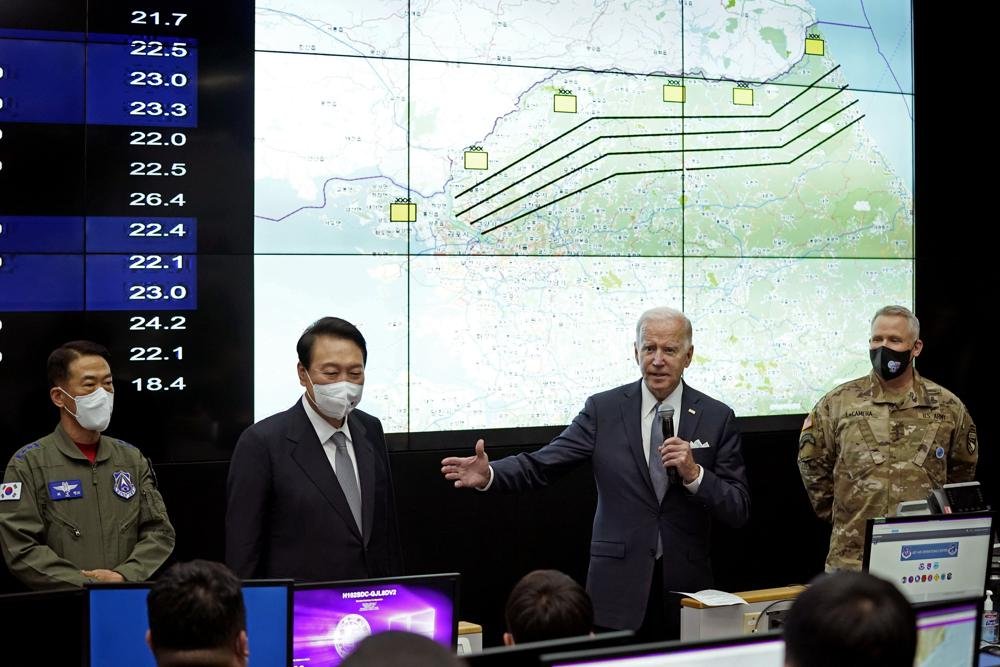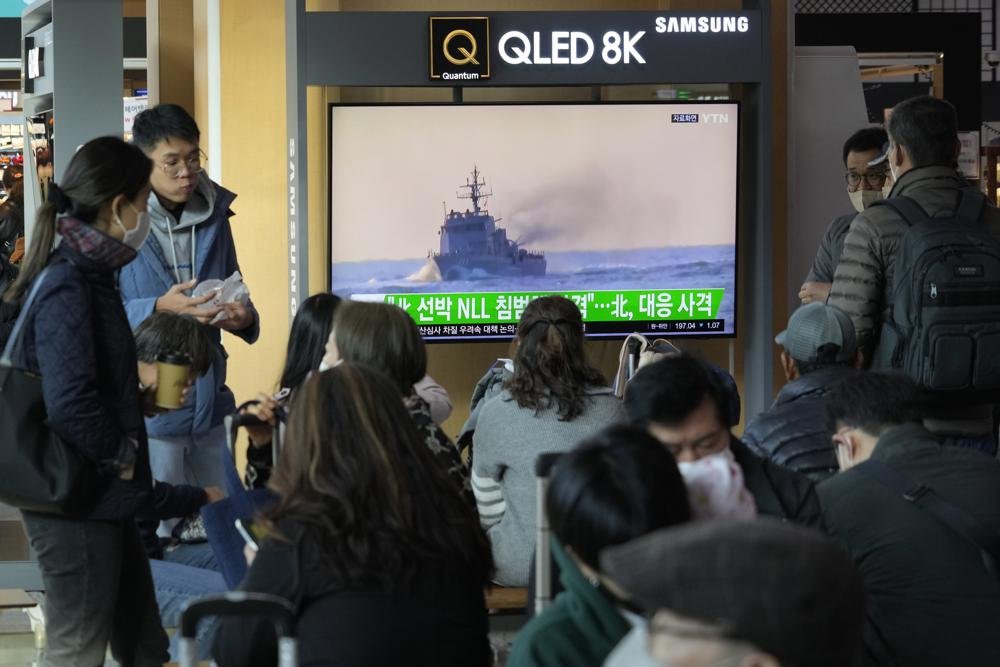PYEONGTAEK (SOUTH KOREA), May 20 (AP): US President Joe Biden on Friday opened his Asia trip by highlighting the computer chip shortage that has bedeviled the world economy, touring a Samsung computer chip plant that will serve as model for a USD 17 billion semiconductor factory the Korean electronics company plans to open in Texas.
The Samsung visit was a nod to one of Biden’s key domestic priorities: increasing the supply of computer chips.
A semiconductor shortage last year hurt the availability of autos, kitchen appliances and other goods, causing higher inflation worldwide and crippling Biden’s public approval among US voters.
Biden will grapple with a multitude of foreign policy issues during a five-day visit to South Korea and Japan, but he also crafted an itinerary clearly meant to tend to the concerns of his home audience as well.
The president noted that the Texas plant would add 3,000 jobs and the construction would include union labour.
“These little chips,” Biden said in remarks at the plant, “are the key to propelling us into the next era of humanity’s technological development.”
Greeting Biden at the plant in South Korea was the country’s new president, Yoon Suk Yeol, and Samsung Electronics Vice Chairman Lee Jae-yong.
Yoon is a political newcomer who became president, his first elected office, slightly more than a week ago. He campaigned on taking a tougher stance against North Korea and strengthening the 70-year alliance with the US.
Yoon said in a speech before Biden spoke that he hopes the countries’ partnership evolves into an “economic and security alliance based on cooperation in advanced technology and supply chains”.
The chip plant showed the unique nature of manufacturing as visitors were required to don laboratory coats and blue booties to help keep the facility clean.
Biden and Yoon, who did not wear protective clothing, saw a demonstration of the machinery.
At one point during his tour, Biden received an in-depth explanation of a KLA inspection system on the Samsung plant floor. The California-based company is a major supplier to Samsung’s semiconductor operations.
After a worker named Peter explained the ins and outs of the machinery, Biden quipped, “Don’t forget to vote,” when he returns home to the United States.
Part of the computer chip shortage is the result of strong demand as much of the world emerged from the coronavirus pandemic. But coronavirus outbreaks and other challenges also caused the closure of semiconductor plants.
US government officials have estimated that chip production will not be at the levels they would like until early 2023.
Global computer chip sales totalled USD 151.7 billion during the first three months of this year, a 23 per cent jump from the same period in 2021, according to the Semiconductor Industry Association.
More than 75 per cent of global chip production comes from Asia. That’s a possible vulnerability the US hopes to protect against through more domestic production and USD 52 billion worth of government investment in the sector through a bill being negotiated in Congress.
The risk of Chinese aggression against Taiwan could possibly cut off the flow of high-end computer chips that are needed in the US for military gear as well as consumer goods.







